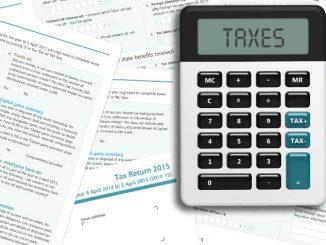
Tax specialists are warning hauliers and driver agencies to check they are compliant with IR35 tax rules on hiring limited company drivers, which were introduced in April last year.
The warning comes as HMRC prepares to end the 12-month “soft landing” period next month and start investigating hauliers and agencies that may have transgressed the new IR35 regulations.
Under the changes, large and medium-sized haulage companies – with net turnover of above £10m, or 50 or more staff – can no longer hire limited company drivers. Instead, drivers need to be employed on PAYE, either by the haulier, the agency or via an umbrella company.
Organisations are also required to check if a worker falls inside or outside the scope of IR35 by using the HMRC Check Employment Status for Tax (CEST) digital tool.
Alastair Kendrick, RHA’s tax consultant and a former tax inspector, is warning that non-compliant hauliers could face the same fate as a number of public sector organisations, which has been subject to the new IR35 rules since 2017, and have been hit with substantial fines.
Last year the Home Office was hit with tax charges and penalties totalling £33.5m after it was found to be non-compliant under IR35 regulations.
Alastair Kendrick, RHA’s tax consultant and a former tax inspector, said: “The Home Office assumed the agency had done its job and got the calculations right. Hauliers should be aware that if HMRC finds that an agency’s calculations are not in line with the CEST tool then anyone in that supply chain could be liable, including the end client.”
Kendrick also warns against cowboy agencies. “We are now seeing in the private sector what we saw in the public sector, with some agencies cornering the market by insisting their workforce is IR35 compliant, when they were not. I know of one NHS agency that lost 60% of its workload this way and no longer exists.”
Read more
- IR35 rules kick in with onus on operators to check driver status
- IR35 tax reform will worsen driver shortage and favour smaller operators, claims KBC Logistics
- IR35 will only level the LGV driver pay playing field
Nigel Morris, employment tax director at MHA MacIntyre Hudson, said it may take time for HMRC to act due to the impact of the pandemic but said this leaves hauliers in danger of accumulating substantial fines.
“Penalties will be applied retrospectively and so by the time HMRC does investigate the end user haulier or supermarket, two or three years down the line, they could find they are facing very substantial liability, even if it is people further down the supply chain that got it wrong.
“The advice is: if you are told these self-employed drivers do not infringe IR35 do your own due diligence and double check. Any of these assurances needs testing because it is not always clear what questions were put and in what context were they answered.
“You may be told there is a legal opinion but you need to check that the circumstances on which that opinion was given match yours. Do your own assessment using the CEST tool and check that it is consistent with that of the agency.”
The Office of the Traffic Commissioner is also warning hauliers to check they are compliant or risk reputational damage. A spokesman said: “If you as a haulier claim your driver is self-employed when clearly the driver should be on the books, that becomes an issue of repute for the haulier, as it is the haulier’s responsibility to ensure that driver is compliant - and the Traffic Commissioner would also refer that infringement to HMRC.”
HMRC insists there is no way around the regulations. A spokesman said: “Organisations are responsible for determining the tax status of workers contracted through personal service companies. There are no loopholes. Businesses should ignore supposed quick fixes that claim to change the status of a worker without changing the reality of the work. Failing to take reasonable care will result in any additional tax and National Insurance being owed by the business.”
However an investigation by Motor Transport’s sister magazine Transport News has found that there is confusion around how to apply the HMRC’s CEST tool and that limited company drivers are still being used by a number of driver agencies and major operators who insist they are within the IR35 regulations.
See Transport News’ latest issue for more on its investigation into the use of limited company drivers one year after the IR35 regulations came into force.













